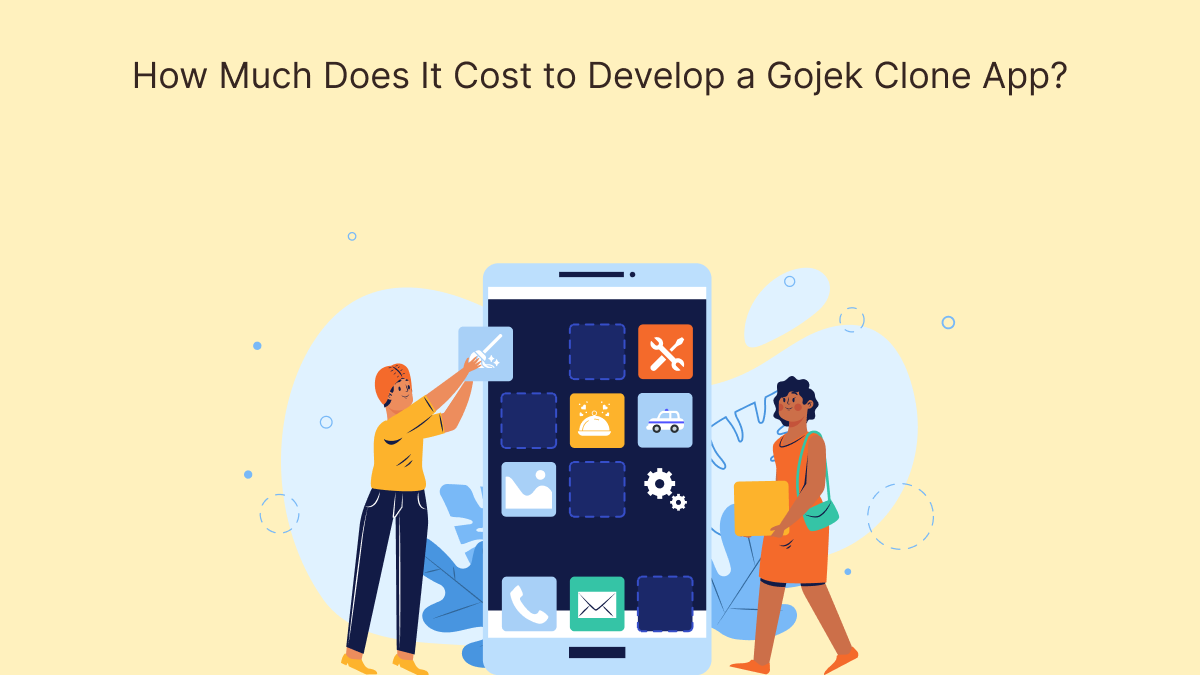In recent years, multi-service platforms like Gojek have revolutionized the way people access services, combining ride-hailing, food delivery, payments, and more into a single app. The growing demand for similar platforms has led many entrepreneurs to consider developing Gojek clone script. However, one of the most pressing questions is: how much does it actually cost to develop such an app?
Understanding Gojek and Its Features
Before diving into costs, it’s essential to understand what a Gojek clone app entails. Gojek is a super app that offers a variety of services, including:
-
Ride-hailing: Connecting drivers with passengers.
-
Food delivery: Delivering food from local restaurants.
-
Logistics services: Providing delivery services for parcels.
-
Payment services: Facilitating cashless transactions.
-
Beauty and wellness: Offering on-demand beauty services.
-
Home services: Connecting users with professionals for tasks like cleaning and repairs.
Given the diversity of services, a Gojek clone app needs to encompass a wide range of functionalities, which can significantly impact development costs.
Key Factors Influencing Development Costs
-
Platform Choice: The choice between developing for iOS, Android, or both affects the cost. Developing for both platforms usually requires a higher investment, as each platform has different guidelines and coding languages.
-
Design and User Experience: A user-friendly interface is crucial for the success of an app. Investing in a professional design can enhance user engagement but will add to the overall cost.
-
Core Features: The cost will vary based on the features you choose to include. Basic features like user registration, GPS integration, and payment gateways will be less costly than advanced functionalities such as AI-based recommendations, real-time tracking, or in-app chat.
-
Backend Development: A robust backend is essential for handling user data, processing transactions, and managing various services. This often requires hiring experienced developers, which can significantly increase costs.
-
Location: The geographic location of your development team can greatly influence costs. Developers in North America and Western Europe typically charge more than those in Eastern Europe or South Asia.
-
Post-Launch Maintenance: Ongoing costs, including updates, bug fixes, and server maintenance, should also be considered in your budget.
Cost Estimates
Based on these factors, here’s a rough estimate of the cost to develop a Gojek clone app:
-
Basic App: A basic version of the app with essential features can range from $10,000 to $25,000. This version typically includes ride-hailing and food delivery functionalities.
-
Intermediate App: An app with a moderate set of features, including logistics and payment services, might cost between $25,000 to $50,000. This would provide a more comprehensive user experience and include a better user interface.
-
Advanced App: A fully-fledged Gojek clone with all features and a robust backend could range from $50,000 to $100,000 or more. This would encompass advanced functionalities like multi-language support, high-end security features, and complex algorithms for service optimization.
Conclusion
The development cost of a Gojek clone app can vary widely based on several factors, including the features you want, the complexity of the app, and the location of your development team. It’s crucial to outline your objectives clearly, prioritize features, and seek quotes from multiple developers to find a solution that fits your budget.
Investing in a Gojek clone app can be lucrative, but it's essential to plan carefully and understand the costs involved. With the right approach, your multi-service app could become a key player in the growing on-demand service market.



